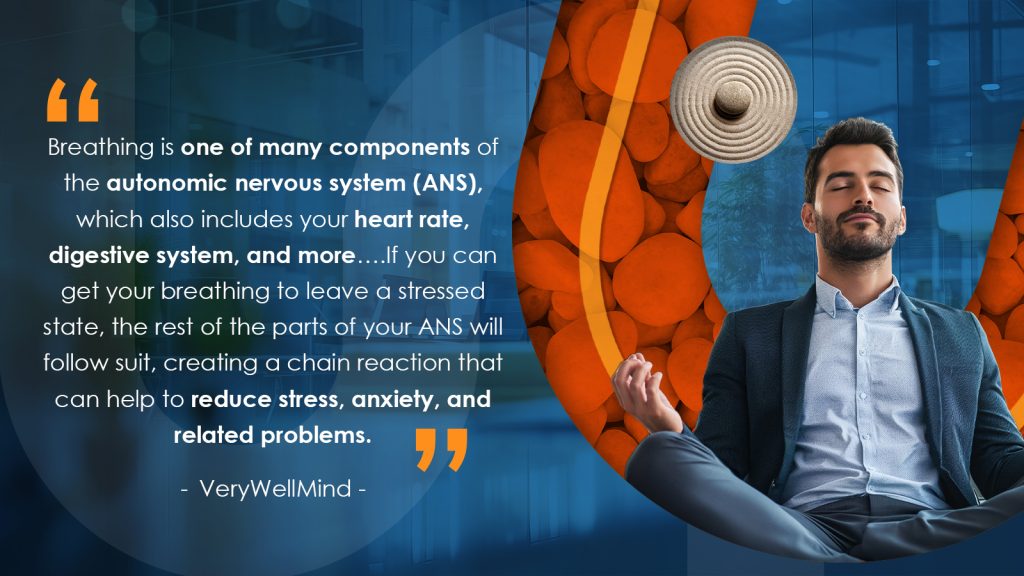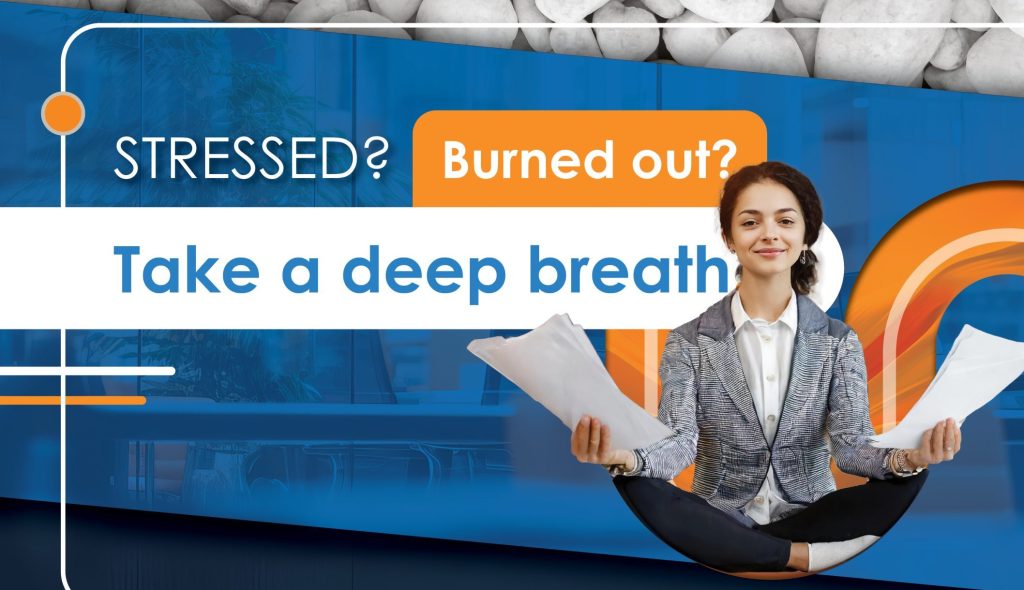Master the Balanced Breath for greater resilience
The workplace is facing a new pandemic – burnout. One in four employees globally report experiencing symptoms of burnout, which includes exhaustion, mental distancing, and cognitive and emotional impairment. This can lead to anxiety, depression, or other, more severe, mental health conditions. Not only is it unsustainable for the individual, but it also deeply affects their workplace performance.
As the American Psychological Association’s senior director of applied psychology, Dennis P. Stolle (JD, PhD), explains, “When workers are suffering from burnout, their productivity drops, and they may become less innovative and more likely to make errors. If this spreads throughout an organization, it can have a serious negative impact on productivity, service quality, and the bottom-line.”
So what are individuals and employers to do? According to Breathwork Africa’s Managing Director, Marj Murray, a good starting point is simply to breathe.
“When we change the way we breathe, we change the way we feel,” Marj explained to our Unisure global teams in a recent talk facilitated as part of our internal ‘Happy Balance’ employee wellbeing initiative.
“As human beings, we have maladjusted to stress – there’s this go-go-go culture, where we need to constantly achieve and perform, but in the process we’ve forgotten how to rest. And if you cannot rest, you’re not going to be able to tap into your creativity, and, most importantly, you’re not going to be able to balance and regulate yourself.”
Marj’s introduction to the health benefits of breath work was a very personal one. Eight years ago, when she was leaving the corporate world and entering a coaching environment, she visited a doctor for her fatigue and was advised to try conscious breathing.
“I decided to give it a go,” she told an attentive online audience, “and during that period of time, I was able to come off all my anti-anxiety medication, my anti-depressants, and my chronic heart medication. All I did was change the way I breathed, and slowly I learned that I could control my heart palpitations and engage in life more effectively.”
To take the power of breathwork into a practical realm, Marj guided us through a Balanced Breath routine (also referred to as a ‘3-6-5 breath’ because the aim is to do it 3 times a day, at 6 breaths per minute, for 5 minutes at a time).
Watch this video of Marj teaching the Balanced Breath here.
“While the average adult breathes around 16 – 20 breaths a minute, the general goal is to be able to breathe 12 – 14 breaths a minute on a daily basis. The Balanced Breath technique brings one down to around 6 breaths a minute, which is the optimal breathing rate for healing and health,” Marj says.

“The Balanced Breath technique has been used for decades to treat highly stressed individuals, as well as people suffering from post-traumatic stress disorder (PTSD),” Marj explains. “The science behind it is something known as one’s heart rate variability, which is becoming an increasingly researched biomarker of mental health resilience.”
If the measure of how quickly or not we bounce back from a physical or mental illness can be affected by how we breathe, then surely we have a duty to try this simple routine for ourselves?
As Marj says, “The best part about breath work is that you don’t have to go to the gym, take out a yoga mat, or put your running shoes on, because our breath is with us all the time. You can do it anywhere, at any time – in the car, at the office, or even while you’re lying in bed.”
To learn more about the power of breathing, follow Breathwork Africa on social media to stay abreast of their workshops and courses, and read, Breathe: Strategising energy in the age of burnout, written by Dr Ela Manga, Breathwork Africa’s founder.

